Home » Hunting Videos » From Our Hearts – A Project Upland Original Film
From Our Hearts – A Project Upland Original Film

This is a story about what we learn from hunting dogs and our unwavering bond to their place in our families
Let’s be honest—if you have a slight limp, you usually try to wait it out a couple days to see if it resolves itself. Maybe it’s a guy thing, maybe it’s a dad thing, I don’t know. Right or wrong, wherever this mentality comes from, it’s the same approach that I take with my dog. My Vizsla, Hunter, has had many temporary limps over the years. With a little extra love and rest at home, he has always bounced back to one hundred percent.
Presented by: Upland Gun Company, Dakota 283, and Hunting Dog Confidential Magazine
That was until late January of 2020 when he presented with a painful limp in his left foreleg. This limp was different though; it was persistent like an impudent black fly swarming your ankles while you desperately try to swat it away. No amount of extra love or rest seemed to make a difference.
Hunter was due for his annual check-up and vaccinations in early February, so I cited his limp during our visit. I mentioned that we had just wrapped up a solid hunting season and that it was not unusual for him to limp once in a while after so much exertion, especially for an old bird dog. Ticks are prevalent in the area that we hunt, so I asked our veterinarian to test him for anaplasmosis and Lyme disease. Our doctor agreed and he thought it was a good idea to also check for infection, but he knew something else was bothering that leg. Without hesitation, but with respectful consideration, he said he was concerned about osteosarcoma, or bone cancer. My heart sank. The thought of cancer had never crossed my mind. The small, sterile exam room suddenly felt like a scorching hot sauna. My silence must have said it all. What I thought would be a routine check-up was about to become an emotional rollercoaster—and an expensive one, too.
Hunter leaned against me as he often does, and I put my arm around him. Although he couldn’t understand our conversation, he could tell from my body language that something wasn’t right. He’s always had the innate ability to discern when something was bothering me. As I gathered myself, the vet suggested a couple more tests; X-rays of both forelegs and a chest X-ray to check his lungs for any sign of cancer spread.
As they took Hunter into the back room, my mind raced in a million different directions. I feared the worse but hoped for the best. What would it mean if Hunter had cancer? What would his prognosis be? And what the heck is osteosarcoma?
With the world at my fingertips, I pulled my phone out of my pocket and Googled, “Osteosarcoma in dogs.” Of course, that only made matters worse. I learned that once a symptom of bone cancer presents in a patient, it’s usually already too late—metastasis has likely already taken place. Before I could torture myself anymore, the doctor returned to the room with the scans.
The scan of his lungs came back clean, which was great news! However, the scan of his left leg showed an abnormal growth on his humerus bone. The doctor said it wasn’t the classic, radiating pattern that he’d seen in other patients with osteosarcoma, but something was certainly going on and would require further testing. The scans were sent to an orthopedic surgeon for another opinion; we were sent home with anti-inflammatory medication and more questions than answers.
Waiting and not knowing was the hardest part, but a diagnosis of “inconclusive” also gave us a glimmer of hope. What made things really complicated for me was that his anti-inflammatory medication completely eradicated his limp. Hunter was back to his old self. While this was great to see, it also clouded my judgment. I was firmly in denial and didn’t want to believe that he was really sick.
News from the orthopedic surgeon didn’t take long. He agreed that the growth on the bone didn’t look like osteosarcoma, but the scan clearly showed that something else was definitely wrong. With all the other tests ruled out, the next recommendation was a bone biopsy. That meant major surgery to remove a core from the affected bone. It would be painful and Hunter would need time to recover.
It took a week for me to digest everything I’d been told. It was hard for me to accept the notion that Hunter could have cancer, but it would have been selfish and irresponsible to not move forward with the biopsy. I began to question myself. Had I waited too long? Was the cancer spreading at that very moment?
Anxious and unexpectedly emotional, I dropped him off at the vet on a Friday morning for his biopsy. Once again, Hunter could read my body language and knew something was going on. While he did his best to console me, it took much encouragement to get him to leave my side. I ended up walking him to the back room with the vet tech and quickly handing over the leash as the door closed in my face. Through the tiny window, I watched until he disappeared down the hall.
The biopsy took most of the morning, but I was told it went smoothly. The doctor said his bone had some type of growth or irregularity and describe the surface as looking like coral. He was able to extract a good sample of the bone as well as some tissue surrounding the bone that was irritated and swollen. Hunter came home later that afternoon and, although he had just had a chunk of bone pulled out of his leg, he seemed unscathed—typical bird dog with so much heart and nary a complaint.
While Hunter carried on like nothing happened, I was a complete mess. It could take up to a week for the pathology report. The longer I had to wait, the more time I had to count my faults. Guilt is a powerful emotion and it was eating me up. Had I waited too long to bring him in for an exam? It’s no secret that bird dogs are tough, but they still depend on their humans for discernment. Dependability, that’s part of what makes the bond between a hunter and his or her bird dog such a strong partnership. Did I hold up my end of the bargain? While there were much larger decisions ahead, had I made the right decisions leading up to this point?
A few days later while out running errands, my phone started vibrating. Startled, I failed to get my phone out of my pocket quick enough, and I missed it. My phone read, “Vet Missed Call,” which was then followed promptly by a voicemail notification, ding! I listened to the beginning of the message, but abandoned it in favor of calling the doctor back instead. Fear crept into my mind as I waited for him to answer.
I felt like I was back in that sauna, but this time the heat was unbearable. The doctor delivered some sobering news. The pathology report stated that Hunter had a grade III malignant soft tissue sarcoma that was affecting his bone. We were presented with three options: 1) Surgically remove the tumor and follow up with radiation treatment and chemotherapy, 2) Amputate his leg and follow up with radiation and chemotherapy or 3) No treatment with pain management.
Real talk? There were no guarantees with any of the options. Costs aside, his age and quality of life were major factors in the decision. The prognosis from pathology was “guarded.” This is the prognosis given when the outcome of a patient’s illness is in doubt—not exactly what anyone wants to hear.
Doubt is a powerful emotion. Have you ever doubted your pointing dog, only to be proven wrong? It happens to me time and time again. Exhibit A: Bird dog goes on point, upland bird hunter doesn’t believe there is a bird there, flush! Exhibit B: Bird dog is tracking a bird, upland bird hunter thinks we should go a different way and forgets bird dog has better nose, flush! Exhibit C: Upland bird hunter is trying to cast his dog into a likely cover, bird dog refuses to change his trajectory as he always knows best, flush! Guilty. We’ve all been there.
Maybe it was time I didn’t doubt my dog. Perhaps it was time for me to fully trust and believe in him. He could overcome cancer, but which course of action should we take? A limb-saving procedure would spare his leg, but the cancer had a better chance of returning. An amputation was the best option to try to eliminate the disease, but how would a soon-to-be 13-year-old dog manage on just three legs? One thing was clear, though: doing nothing simply wasn’t an option.
I was anguished over the decision. I wished more than anything to have the ability to talk to Hunter and ask him what he wanted me to do—spare his limb, or take it.
The good news was that I didn’t have to make that decision alone. My wife was right there with me, as were our two sons. We witnessed both of our boys’ faith grow stronger as they laid hands on Hunter and prayed over him every night. When asked what they thought we should do, with childlike faith and conviction, my 8-year-old exclaimed, “Amputate, why wouldn’t we?”
It’s easier for kids to make tough decisions when you eliminate all the layers. They don’t have to rationalize like adults do because they keep things simple and don’t over-think or over-analyze situations. The dog is in pain; okay, let’s fix it so that he’s not in pain.
And that’s what we did. In March, Hunter had his leg amputated. The first week of recovery was tough, due mostly to a major infection that required repeat vet visits and re-suturing. The amputated leg was sent to pathology after his surgery and the report brought some much-needed good news. The lymph nodes in the leg had no cancer cells; this was a surprising find, according to his doctor. While it didn’t eliminate the possibility of cancer spread, it certainly gave us a reason to be optimistic.
With the infection under control, Hunter’s recovery was fairly smooth. He was becoming more mobile and quickly learned how to get around on three legs. His spirits were high, as if nothing ever happened. Through spring and into summer, his lone foreleg grew in strength, as did his confidence. He was managing well and even took a few long hikes with our family. I was encouraged by his progress, but there were still many unanswered questions.
As summer drew closer to fall, my mind drifted to upland hunting. With Hunter on the mend, my mind went there, of course, and it went there often! Could my bird dog hold up to the rigors of a full hunting season just six months after an amputation and cancer diagnosis? I certainly had no reason to believe that he couldn’t. He was moving well, he was otherwise healthy, and his heart was certainly willing. As we all know, it’s never a question of if a bird dog wants to hunt, but how.
Hunter’s positive attitude became my motivation; I was determined to make sure I did everything I could to set him up for a successful hunting season. The truth was, it didn’t take much. We continued with his existing diet and we maintained his health through off-leash walks and some low-impact water exercise. In usual fashion, Hunter enjoyed patrolling our cabin for squirrels as well as pointing the ruffed grouse broods that frequented our yard. It was as if nothing had changed.
If you think about it, dogs really don’t know any different. They don’t have family or friends to call upon or draw experience from. He walked into the vet one day with four legs and came home with three. I imagine he was a bit confused at first but, ultimately, he probably put very little thought into it other than, “Okay, I guess this is what happens when dogs get old.” He’s never created an excuse, he’s never felt sorry for himself. He has just lived the bird dog life he’s always known.
As our season started, we adopted a less is more approach. A phrase coined by Ludwig Mies van der Rohe, the minimalist philosophy reflected his pioneering work in twentieth century modernist architecture. Beauty, he alleged, was not derived from abundance.
And so, Hunter and I embraced this philosophy and adapted it to our hunting. We hunted with more purpose, but it wasn’t fancy; we simplified things. We hunted familiar covers and we targeted specific species. I capped our hunts at two to three hours maximum and we rarely hunted consecutive days. We hunted smartly and efficiently. I rarely gave Hunter any commands. I just let him work, reminiscent of the days when he was just a puppy. Most of the time, we hunted alone or with close family.
Our time in the woods took on greater meaning. All of a sudden, quality outweighed quantity. We began to disregard the concept of time and simply enjoyed each and every moment.
There was an attraction to the monotony of those October strolls through young aspen, just Hunter and me in search of woodcock and ruffed grouse. Often, my mind slipped to naught, as the first thousand aspens looked the same as the next. It was simply beautiful in simply being.
On several occasions I would forget that he only had three legs. Watching him navigate alder thickets and deadfalls with relative ease was truly astonishing to witness. It was as though he’d been born with three legs and a spare, but only recently lost the spare. I imagine that to Hunter, missing that leg never crossed his mind.
The season brought us countless highs, the highest being the first bird of the season (a woodcock), culminating in an emotional celebration. We also experienced some delightful surprises. Initially, I had restricted Hunter to just grouse and woodcock hunting as I believed the cover suited him best for his condition. He proved me wrong again on several late-season Minnesota public land pheasants. He managed pheasant cover like a seasoned veteran, bounding through snow and cattails just as he did as a younger pup—albeit more methodically now. He outsmarted even the wiliest of old roosters and pointed them with style.
If bird contacts alone were a measure of success, Hunter had achieved greatness. You hear a lot of people talk about that “special year,” the time when you witness your dog connect all the dots, when seemingly everything falls into place. The one year that you call the “epic upland season,” the year your dog performed beyond expectation. It has been an absolute pleasure to hunt over Hunter all these years and I can say with great confidence that this past year at age thirteen was undoubtedly his “special year.”
In a season with so many unknowns and very few expectations, Hunter delivered an inspiring and humbling performance. We could all stand to gain from his perspective. You could say… he used less, but gave so much more.

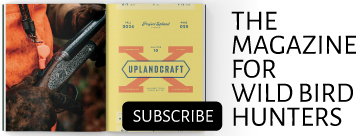
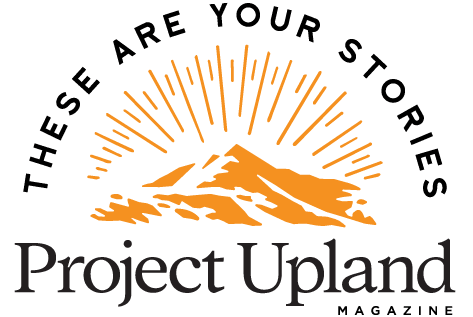

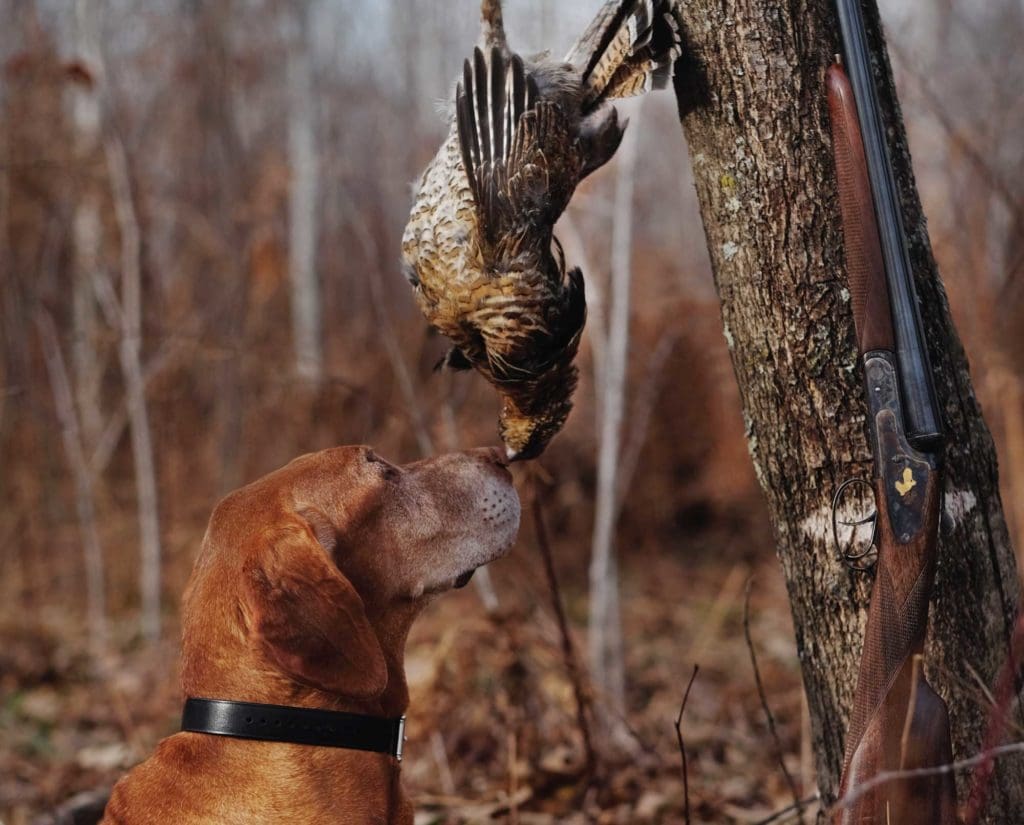
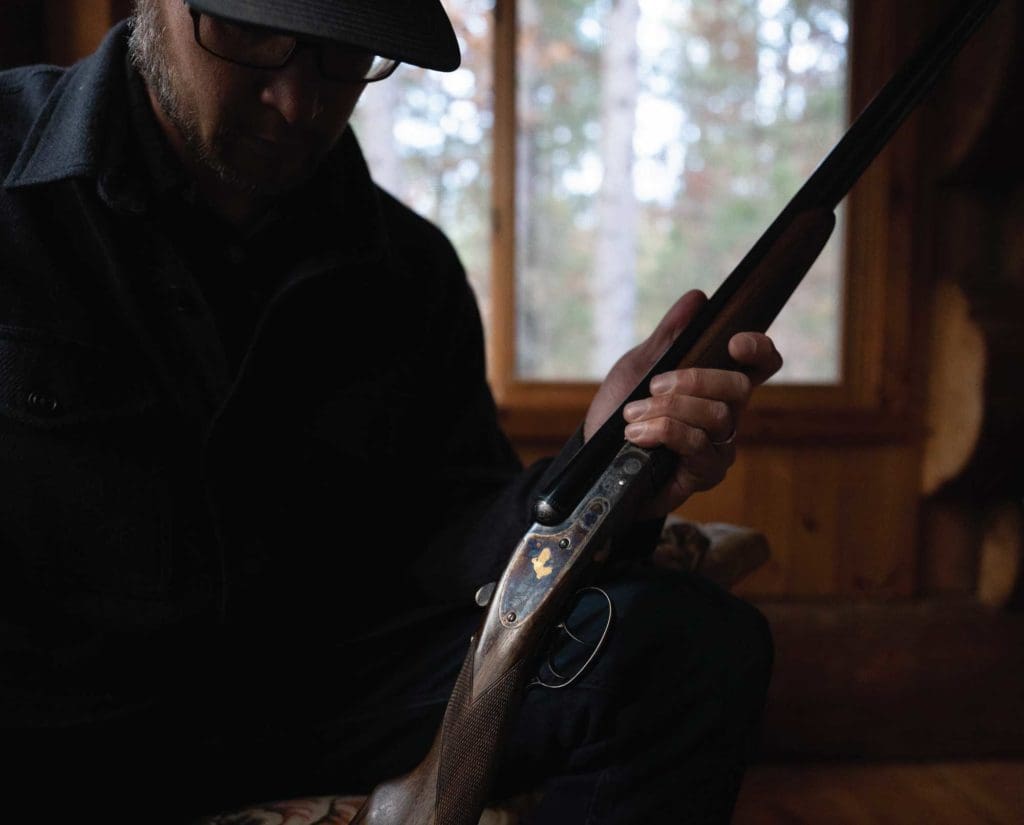
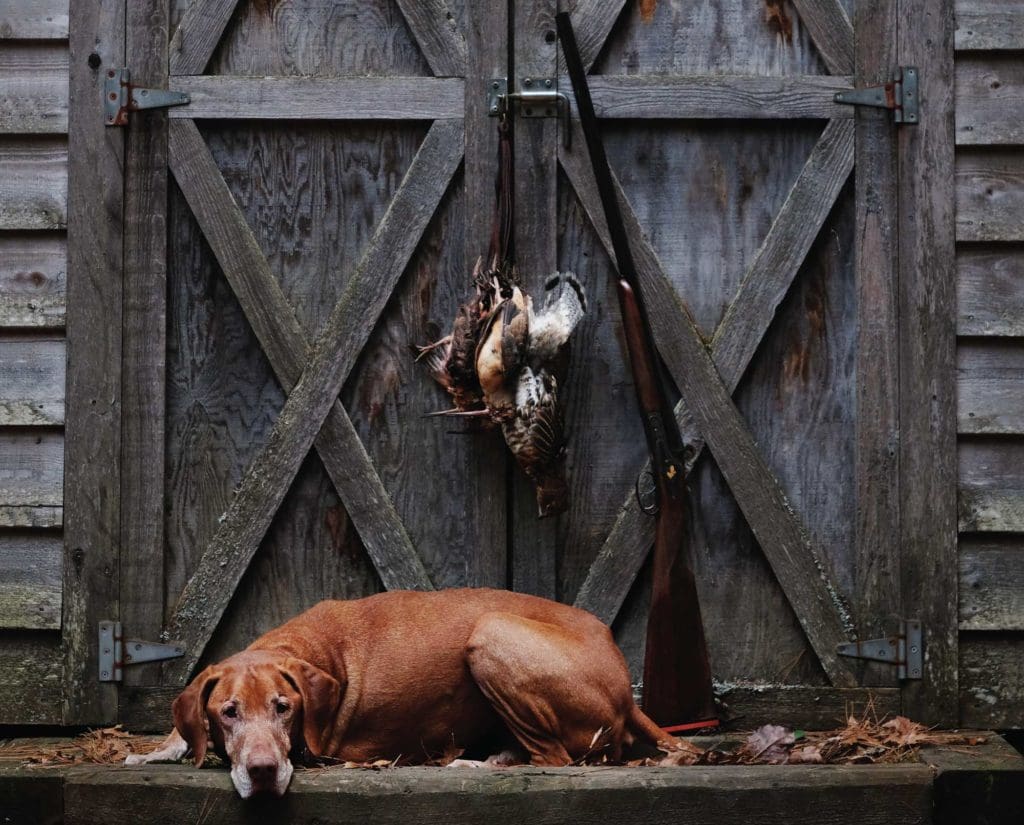
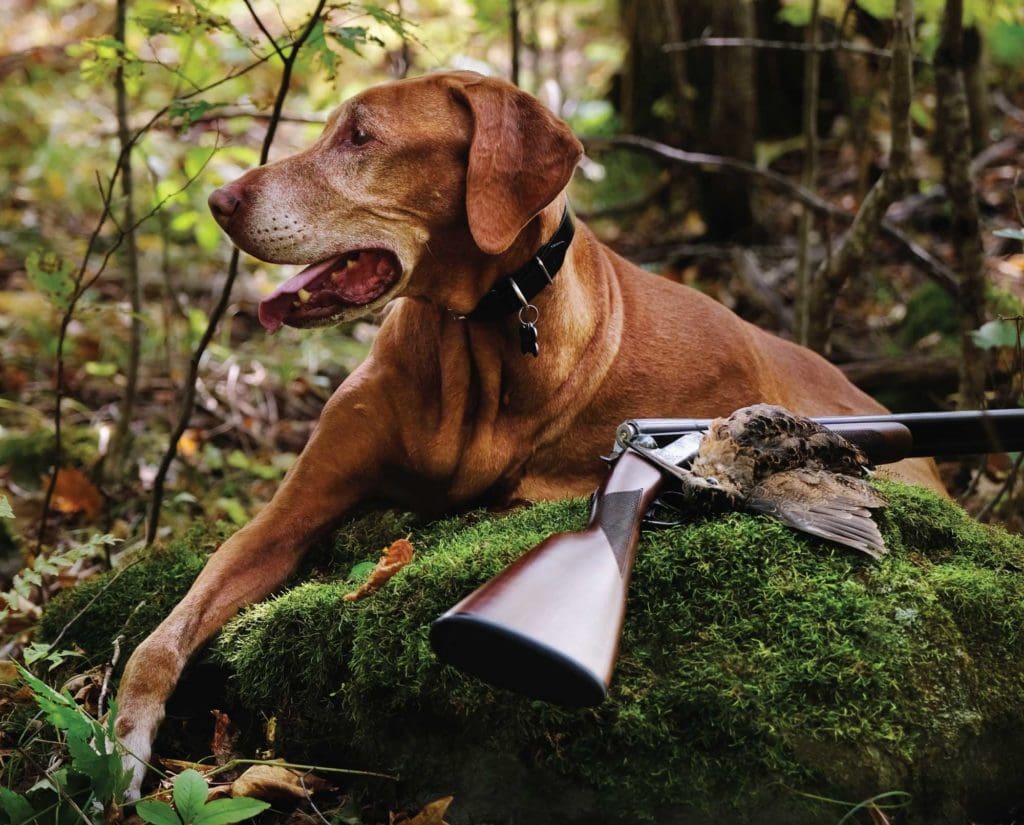
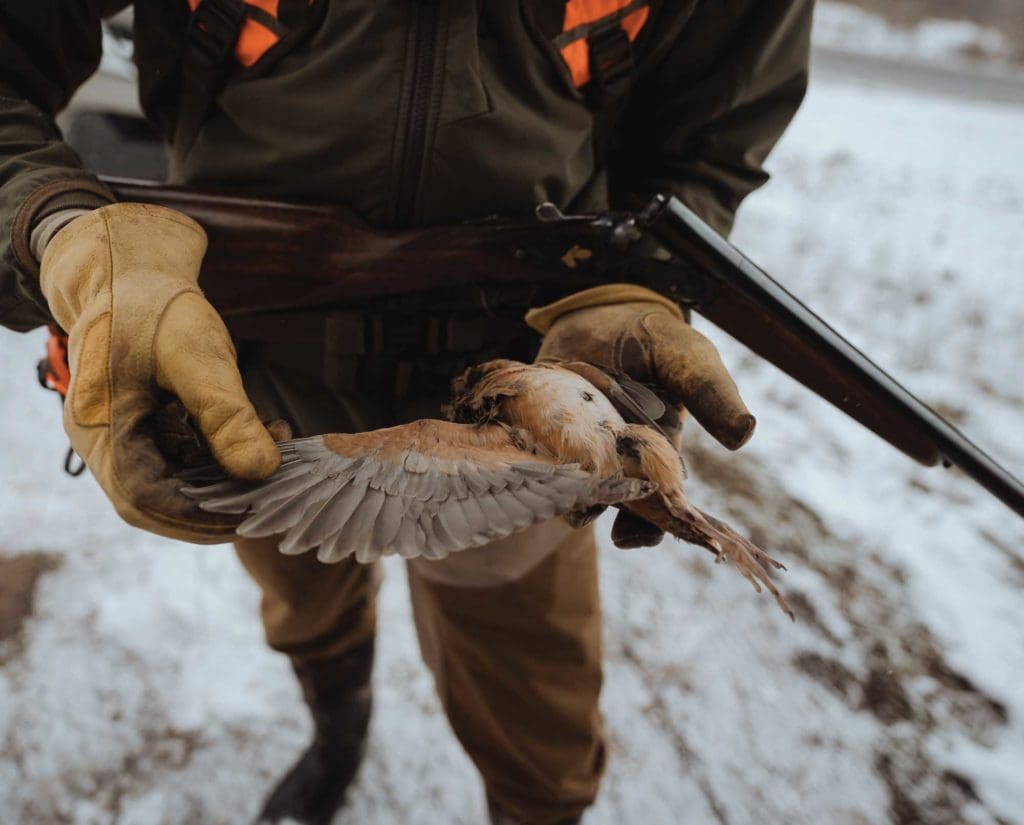
First, I read the text, and then watched the video…Our relationship with the dogs that lead us in the woods is so special, and so private….and when time steals our buddy, well…it’s just tough…great video and fine legacy for a hunting partner